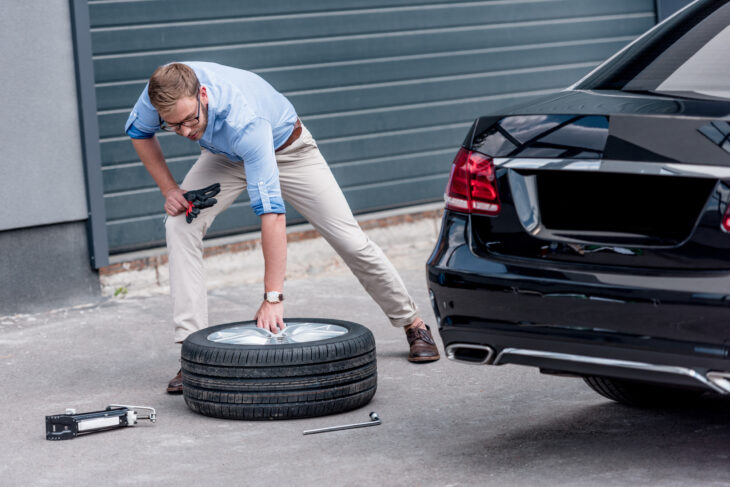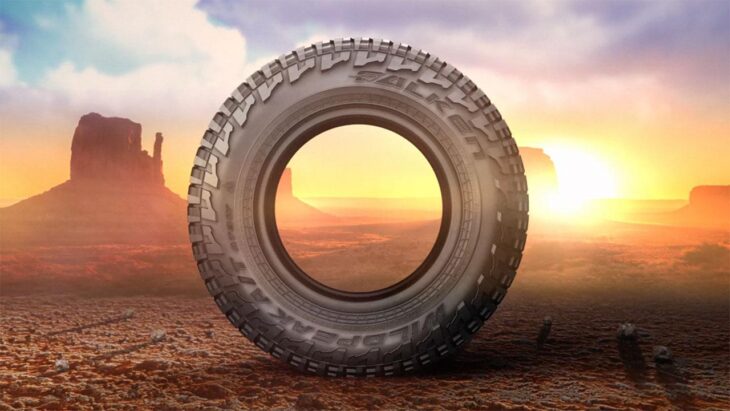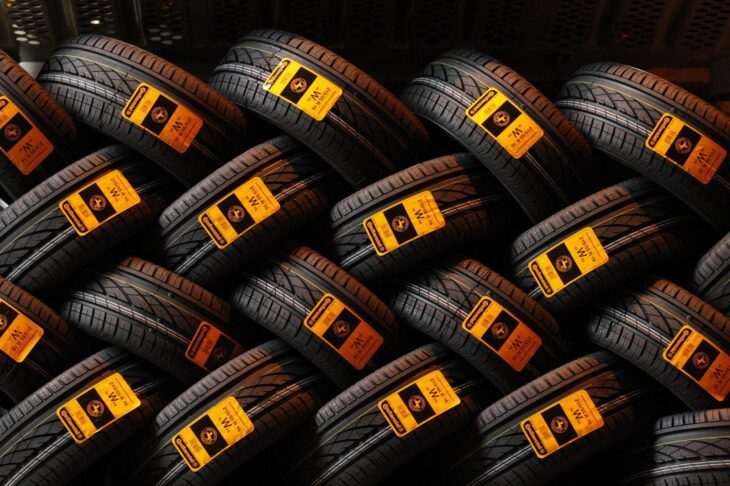When summer arrives, a heatwave comes and hugely affects car tires in summer weather: How your tires are affected and how to avoid issues.
In the summertime, car tires suffer many serious issues. Typically, the temperature of the rubber becomes excessively high because of the sunlight and UV-rays. These are hazardous conditions that have to entendre, which can worsen if we drive on rough and overheated surfaces.
For this reason, it is essential to carry out the tire problems in summer weather: How your tires are affected and how to avoid issues. If you want to know how the heat affects them, keep on reading!
Contents
How Summer Weather Affects Your Tires?

Source: parksidemotors
Rising air temperatures can cause tire pressure to drop. And driving with under-inflated tires can affect vehicle behavior and braking efficiency. It also has to mention the possibility of a tire explosion while driving.
Rising air temperatures can cause tire pressure to drop.
You also have to take into account that the heat can wear them fast and do not forget to revise the design of the structure, both the depth and the condition, to reduce the probability of causing damage to other vehicle elements.
Besides, with the heatwave, the tread heats faster, shortening their useful life by 15%, which leads to an increase in fuel consumption of around 7%.
How to Avoid Tire Issues During Summertime?

Source: nearsay
Check Tire Pressure
Do pressure examination every two weeks and make sure the tires have the pressure recommended by the manufacturer. In this way, you can ensure the two most important things for safe driving, reduced braking time, and reduced fuel consumption.
Tire pressure check
The pressure must be checked when cold, without having driven more than 4 or 5 kilometers. If these conditions are not strictly followed, the measurements can be incorrect and may then present significant variations due to the characteristics of the ambient atmosphere in summer.
It is not enough to check the pressure that is mounted on the vehicle. It would help if you also remembered to take that of the spare tire. Otherwise, you will have an unpleasant surprise when using it.
It must have 0.5 bar more pressure than the other wheels. Remember that the role of a spare tire is to help you in urgent cases. If you do not take care of it, you will put yourself in an even more difficult situation!
Lastly, it is essential to remember to have everything you need to change a wheel. Remember that with heat, the risk of punctures increases, and it is better always prepared.

Source: falkentire
Check Tire Conditions and Structures
Road Safety recommends changing the tires when the design depth is less than 1.6 millimeters. However, in summer, it is best to ensure that it reaches two millimeters since the heat affects the whole structure.
Always check the tire’s conditions.
They must be cleaned from time to time to remove dust and accumulated dirt. It is the best way to check their conditions and structures.
In the event of a puncture or a burst tire, it is essential to change a new tire on the same axle in terms of dimensions, tread pattern, speed and load ratings.
Change to Summer Tires
If you have winter tires on your car, it is better to change them when summer arrives. The design of a winter tire has particular functions. It can withstand low temperatures and avoid slipping on the road in the event of ice or rain.
Summer tire
However, it should never be used at temperatures above 7 degrees, which is why to replace them with summer tires when the heat comes. Even if it may seem trivial, many people decide to keep their winter type all year.
The answer is the winter type is not designed for such high temperatures. Not only will they wear out more quickly, but their performance will be severely worsened by high temperatures, thereby increasing the risk of accidents.
Why Are Summer Tires Better?

Source: phoenixtowingservice
Mainly for your safety. Winter tires are very efficient, and their grooves are used to evacuate water. They have better traction, the rubber is softer in summer and more flexible in cold weather. But they are only perfect for temperatures below 7 degrees.
As temperatures rise, the grip capacity decreases, and they can suffer from considerable degradation in the tread. Here are some reasons that you always need summer tires for hot weather:
- They are made with hard components that do not soften with heat.
- They react better to braking at high temperatures.
- They will help you save fuel efficiently.
- Also, summer tires have more excellent wear resistance and are less expensive.
Rising temperatures directly affect the performance of your vehicle’s tires. That is why, with the rise in temperatures, it is time to put aside winter ones.
You can also visit review sites, such as Talkcarswell.com, to find reviews according to tire brands or find the best summer tires for your car. It is the leading resource online for practical advice tire reviews and guidance for your vehicle.
Is It Inconvenient to Have Both Winter and Summer Types?

Source: carfromjapan
It depends on how you look at it! Adapting each type of tire to the seasons means investing in our safety, and that is priceless! So, don’t overlook this essential aspect of your safety.
But don’t forget that you’re going to need room to keep the tire sets. So, it is better to take yourself in hand with professionals and go to your trusted workshop.
Final Words
The article is everything you need to know about summer weather: How your tires are affected and how to avoid the issue. Now that you understand how heat affects them put these tips into practice and maximize your driving safety this summer!
Temperatures play an essential role in how they are durable and long-lasting. In hot weather, if you don’t have them in perfect condition, you are more likely to have the tire burst.
Also, in summer, it is recommended to check the tire pressure and their degree of wear even more often to avoid unforeseen events.
